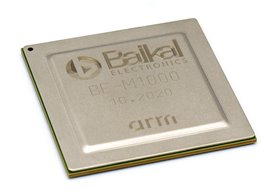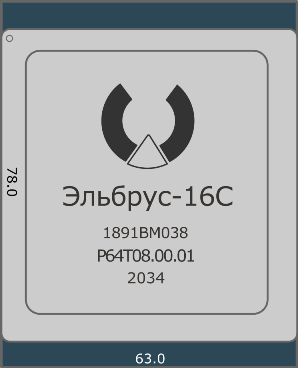
Porównaj Elbrus-16S VS Baikal-T1. Which processor delivers superior performance?
In this detailed comparison, we evaluate the specifications and benchmarks of both processors to determine the best choice for your needs. We analyze their core counts, maximum frequencies, and power consumption.
Elbrus-16S boasts a maximum frequency of 2.0 GHz GHz. 16 cores that enhance multitasking capabilities.With a power consumption of 130 W W, it ensures efficient performance.Wydany w Q4/2021, it incorporates the latest technology for optimal efficiency.
Baikal-T1 features a maximum frequency of 1.2 GHz GHz. 2 cores designed for high-performance tasks.Its power consumption is 3.9 W W, providing a balance of power and efficiency.Launched in Q4/2016, it is built to handle demanding applications.
 Powody do rozważenia
Powody do rozważenia Wyższa prędkość zegara
Wokół 40% lepsza prędkość zegara
Większa liczba rdzeni
14 Więcej rdzeni
Wspólne stanowiska Elbrus-16S Procesor w popularnych benchmarkach, dla porównania z innymi modelami.
 Powody do rozważenia
Powody do rozważenia Wydajność na wat
About 0.03 mniej ciepła wytwarzanego przez procesor, W.
Wspólne stanowiska Baikal-T1 Procesor w popularnych benchmarkach, dla porównania z innymi modelami.
 Elbrus-16S
Elbrus-16S

Comprehensive background on the processors being compared, detailing their series, generation, and targeted market segment.
Essential parameters including the number of cores, threads, base and turbo frequencies, and cache size. These metrics provide insight into the processor’s speed—higher values generally indicate better performance.
Overview of the types and quantities of RAM supported by Baikal-T1 oraz Elbrus-16S. The supported memory frequencies may vary depending on the motherboard configuration.
Analyze the TDP (Thermal Design Power) requirements of Elbrus-16S oraz Baikal-T1 to make an informed decision on the appropriate cooling system. Remember that TDP refers to thermal watts, not electrical watts.
Information on architecture, interfaces, and additional instructions supported by Elbrus-16S oraz Baikal-T1, including virtual machine technologies and fabrication processes.
By analyzing the results from various benchmarks, you can gain a clearer understanding of the performance differences between Elbrus-16S oraz Baikal-T1.
Compare the synthetic benchmark scores and make an informed decision on the best processor for your needs!